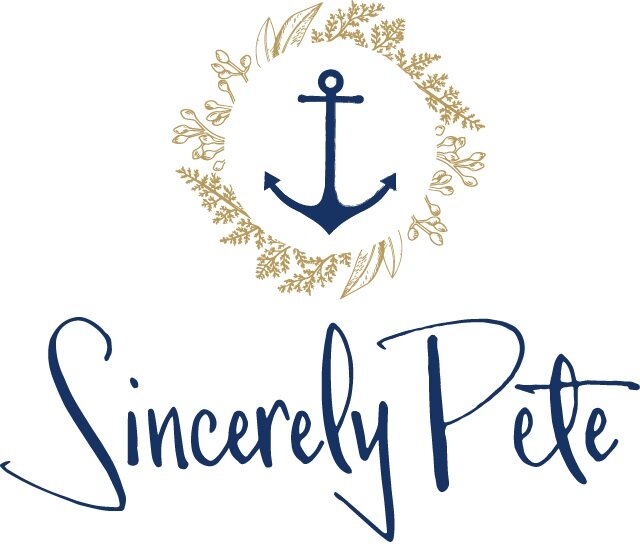Your guide to saying “I do” in two parts—without losing the magic
You’ve got the rings, the partner, and the plan—but you’re wondering:
Can we legally get married now and celebrate later?
Whether it’s to meet a deadline (hello, benefits or immigration paperwork), reduce stress, or simply align with your timeline, more and more couples are choosing to separate the legal wedding from the ceremonial celebration.
And guess what? That’s not just okay—it can actually be ideal.
As a professional wedding officiant in Virginia, Washington, D.C. and beyond, I help couples like you every year navigate what I call the “courthouse-style wedding”—a quick, simple legal marriage followed by a meaningful symbolic ceremony later.
In this post, I’m walking you through exactly how it works, what to expect, and how to make both moments feel personal and intentional.
What Is a Courthouse-Style Wedding in Virginia?
Let’s get this part clear up front:
In Virginia, there’s technically no such thing as a “courthouse wedding” in the way you might picture it in movies.
You do apply for your marriage license at the courthouse—but judges or clerks do not typically perform weddings. Instead, Virginia law requires that a marriage be officiated by someone who has been authorized by a circuit court—like me.
So what’s a courthouse-style wedding?
It’s a short, simple, private ceremony—just you, your partner, and a legally authorized officiant (and sometimes a witness). It might take place:
In your living room
At a park or cafe
In my office or home garden
Or anywhere you feel comfortable
There’s no guest list, no aisle, no big production. Just a few legal words, a signature, and a lot of love.
Why Do Couples Get Legally Married Before Their Wedding Day?
There are plenty of reasons couples choose to get legally married early and hold their “wedding” later:
Logistical Needs: For immigration, insurance, or military purposes
Destination Weddings or Elopements: You want to do the legal part in the U.S. before heading abroad
Ceremony Timing: Your big celebration is months away, but you want to be married now
Emotional Simplicity: Removing the legal pressure from the wedding day allows you to be more present and focused on the emotional moment
Whatever your reason, a two-part wedding can offer both flexibility and intention—especially when it’s supported by someone who understands the legal and symbolic significance of each moment.
What Is a Symbolic Wedding Ceremony?
A symbolic wedding is a full ceremony in structure and feeling—it just doesn’t include the legal license signing.
That means:
You still walk down the aisle
You exchange vows and rings
You involve your guests and tell your story
You include readings, rituals, music—whatever is meaningful to you
But the marriage license has already been taken care of beforehand.
Symbolic weddings are common among couples who’ve eloped, had a civil marriage, or legally married in advance but want the celebration to feel sacred, emotional, and complete.
And no—guests usually can’t tell the difference.
Do You Have to Tell Guests You’re Already Married?
Not unless you want to.
Some couples announce both their legal and ceremonial dates (and treat them both like anniversaries!), while others keep the legal side quiet and let the ceremony serve as their public declaration.
There’s no right or wrong—just what feels right for you.
How to Make Both Moments Feel Meaningful
Just because the legal signing is simple doesn’t mean it has to feel rushed or disconnected. Here are a few ideas to make your courthouse-style elopement feel special:
Wear something you love (even if it’s jeans and a jacket)
Bring a witness or friend to take photos
Write mini vows for each other, even in private
Plan a small celebration after—lunch, champagne, a walk in the park
Then, when it’s time for your symbolic wedding celebration, let yourself fully lean in to the emotion and meaning of that moment. A well-crafted ceremony will make it feel just as real as any legal proceeding.
How I Help with Two-Part Weddings
As a licensed and court-authorized officiant in Virginia and Washington, D.C. and beyond, I regularly help couples who are:
Legally marrying before their celebration
Planning a symbolic ceremony at a later date
Eloping but still want their ceremony to feel personal and grounded
Having a friend or family member officiate and need professional scriptwriting or coaching
Here's how I can support you:
✅ Marriage License Signing: I’ll meet with you to legally marry you in a simple, private ceremony wherever you'd like.
✅ Custom Ceremony Creation: I’ll write a symbolic wedding ceremony that reflects your values, personalities, and story—so it feels like your wedding, not just a formality.
✅ Officiating or Coaching: Whether you want me to lead the ceremony or a loved one to step in, I’ll ensure the words are perfect and the moment feels grounded and joyful.
Final Thoughts
Getting married “on paper” before your big day doesn’t make your wedding any less real.
In fact, having a courthouse-style elopement followed by a symbolic ceremony allows you to approach both moments with more clarity, presence, and peace of mind.
The marriage is in the commitment you make—not just the paperwork.
And your ceremony should reflect that.
Planning to legally marry now and celebrate later?
Let’s talk about how I can help with your elopement, your symbolic wedding, or both.

